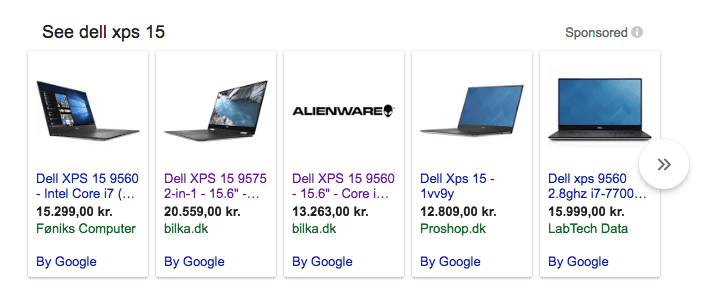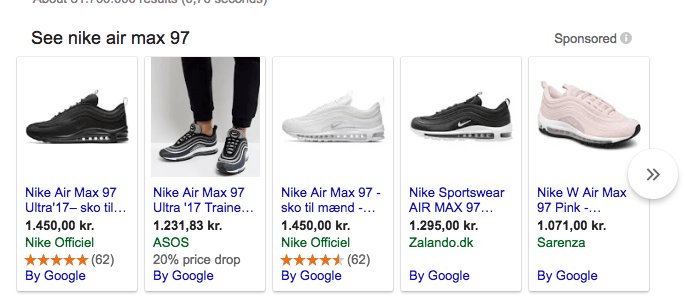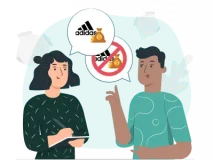Since starting SavvyRevenue, we’ve worked with 19 different advertisers. They’re all eCommerce, and they all have successful businesses today. On paper they seem very similar, especially if you would look at them in any other agency.
But because this is the type of clients we only work with, then we’ve picked up on some of the nuances that make some of our clients more successful than others when it comes to their PPC advertising.
Heavily inspired by a recent podcast by 2Bobs.com, I’ve collected patterns that we see, again and again, from our most successful clients. My hope is that looking at the practices we notice will give you a bit of insight into how you could be more successful in PPC.
Their Products Are Priced Competitively
Price competitiveness has been on our internal list of things to work with this year. We’ve run some tests with a couple of advertisers, and the benefits from being aware of how your key products are priced compared to the rest of the market have driven some radical performance increases.
We’ve identified three stages of price competitiveness with our clients:
- Awareness
- Action on Awareness
- Price Changes
The first stage is simply being aware of how your products are priced in the market. This can often generate some insights that allow you to recognize when your pricing for a specific brand is significantly higher than your main competitors.
At this stage any changes are manual.
The second stage is when you take action on this awareness. You haven’t yet formed a pricing policy that states when and how to change pricing based on market pricing, but you package up the information to your PPC-team so they can act on it.
A couple of basics are:
- Increase impression share (exposure) for categories/products when you have the best price.
- Decrease impression share when you have the worst price.
- Structure your Google Shopping campaigns based on pricing.
Together, these strategies will help you maximize your spend.
A great example of this is the following screenshot:
I’ve been following the prices for the Dell XPS 15 for the last couple of weeks because, at the time of writing this, we are just about to hire our next Senior PPC Manager.
Føniks Computer had been running a 10% promotion on the computer, so their price was cheapest for the last couple of weeks.
This has most likely driven a higher performance, which has enabled their PPC team to increase their bids.
However, as the promotion ended and bilka.dk decreased their price for the exact same model, Føniks Computer is actually more expensive, but because of their historical data they’re still bidding as if they have the best converting offer.
I will bet that within 7-10 days, Føniks Computer will recognize the lower performance and decrease their bids for the Dell XPS 15. How much money do you think they will waste during that time?
This scenario is a great example of how powerful it is to know how competitive your pricing is. With this insight, Føniks Computer could now have decreased their bids for this product earlier, and saved themselves from waiting for the data to come in.
The ability to really go above and beyond your competitors is in the third stage where you layer in price changes and actions. Not only will you proactively know how to set your bids based on how competitive your pricing is, but you will also be able to create your own scenarios where you are better priced and increase your impression share.
This can be incredibly powerful, and we’re working on formalizing this step in all our PPC-agreements as a fixed service offering.
They’re Constantly Improving Their Inventory
A big part of improving Google Ad campaigns (btw – this is the first time I use the new term) comes from constantly improving your inventory.
This not only does this ensure you stay ahead of the competitors, but it also gives your PPC team more juice to work with.
An example can be the keyword Nike Running Shoes.
People searching for Nike Running Shoes that click your ads will expect you to have the latest models from Nike. If all you have to show is last year’s models, then you will have to give up advertising for the more generic terms and stick to the specific terms that cover the products you have in stock.
This will greatly impede your growth opportunities.
PPC, and all advertising, is so dependent on having the right products to advertise for. The advertisers we’ve seen with the absolute highest growth have been the ones who are on the forefront of introducing new products, brands, and categories to their store.
They Think Usability Above All
The absolute best advertisers recognize that all their marketing is capped by one thing: Their conversion rate and lifetime value.
Therefore, they proactively invest a portion of their marketing budget into improving their website to be more user-friendly.
This has a lot of secondary benefits for us as their PPC agency. Their titles become better, their descriptions become better, and their overall content on the site is better.
They incorporate customer reviews, which not only can be used for seller ratings, but also the important product ratings on Google Shopping Ads:
Their content is better, which means that we have a better time running DSA campaigns which enables us to better expand our existing campaigns with new keywords.
They Work in Partnership with Their Agency
Another very important trait is that almost all our clients have an in-depth meeting with us every quarter. We discuss their performance, and plans for the next quarter, but we also set aside significant time to talk about anything new in their business.
The key here is to have the advertiser bring up anything that’s on their mind and play with open cards. The more information we have, the more effective we are able to be. This is why communication is so vital to success.
In one particular meeting we were discussing these things exactly, and through a back and forth we recognized the need for splitting up their account in two different levels:
One account for regularly priced items and another account for their high-priced items. The high-priced items had a longer customer journey, which meant our bid management algorithm for the entire account wasn’t as efficient as it could be.
This is just a small example of how discussing business topics with your PPC agency can help them connect the dots of what’s possible on the PPC side, and improve the performance incredibly.
They Don’t Micromanage Their Agency
The best relationships we have with clients are the ones where they don’t wish to be involved in the day to day.
Our agreement with clients follows a very easy ebb and flow:
When we start out, we base the value we provide on the campaigns we create/present to them. In this stage, we put a lot of effort into communication. This helps us build a strong relationship with the client and get the information we need to build a successful campaign.
As the performance increases as a result of this work, then the communication decreases (freeing up time for our team, and the client’s internal resources) and we base our value on the numbers (ROAS, Profit, Growth).
If, for some reason, performance decreases below an acceptable level, then we increase the level of communication again to ensure they understand the actions that will take us to better performance.
This ebb and flow allows both us and our clients the best of both worlds.
This ebb and flow allows both us and our clients the best of both worlds. We get hands off clients when we need that approach, and involved, easy to communicate with clients when necessary.
Now, this doesn’t mean we don’t communicate at all when performance is good. It just means that we communicate less than we do in the beginning of the relationship. Once we get to know each other and understand the business, we are able to communicate less frequently and spend more time focusing on the details of the account.
They’re Technical and Can Deliver Feeds or Fixes Fast
Some of our absolute best clients have technical departments, or developers in-house, that can create solutions that help us work faster.
Whether it’s a recurring export of new brands/categories, pricing data or custom data feeds, then it’s a huge advantage to be able to get the data.
Especially as we’re working with bigger and bigger advertisers, we see a necessity for creating solutions that move away from the manpower-heavy tactics and instead work with automating setups. This isn’t about doing less work on our end, it is about working more efficiently.
The challenge with automating setups is that the data quality we get from advertisers can vary a lot. So it’s hard to create a solution that we don’t have to rebuild with every client – which is the entire reason why SavvyRevenue is focused on one vertical – we want to be able to focus on the details instead of reinventing the wheel with every client engagement.
Having a technical team in-house allows us to create data-exports that power our automated setups, so we can focus our time on the advertising aspect rather than the technical aspect.
They’re Open and Honest
This is critical for business, and especially for any good partnership. If something isn’t working out, we expect our clients to come out and openly state what they believe can be improved and give us an opportunity to fix it.
We believe that most problems can be fixed if they’re brought out in the open. And sometimes, they can’t be solved – and that’s okay, too.
We believe that most problems can be fixed if they’re brought out in the open. And sometimes, they can’t be solved – and that’s okay, too. It’s much better realizing something can’t be fixed than waiting idly by while you think something is being fixed than can’t be.
An example can be a performance target. If you have a number in your head you hope your agency can get to, we might realistically tell you that it’s simply not possible based on your business, market, prices, etc. It’s better to be open and honest from the get-go rather than wasting everyone’s time.
As my once CFO at White Shark Media, who is a big Texan, told me in one of our first meetings: When you assume, you make an ass out of u and me.
Instead of assuming, we like to communicate openly and set expectations. We are able to be more effective and it helps protect everyone’s time.
Conclusion
The majority of advertisers we work with are in a very small niche. There is a reason for this. We made a conscious decision not to work with certain clients. Why? It all goes back to the phrase “Jack of all trades, master of none.”
By choosing to work with very specific clients, we are able to do our best work and provide our clients with the most value.
The patterns I outlined above tend to correlate with success in the ecommerce space, specifically. If you would like to talk more how we can help you reach your ecommerce goals, reach out for a no-commitment PPC proposal.







1 thoughts on “How to Succeed with your PPC Agency: 7 Practices of Highly Successful Ecommerce Businesses”
Great article Andrew, we can confirm nearly every point from our experience of the last 10 years in PPC optimization in Germany. We focus on similar practices with our clients & lead qualification. (partnership, communication, USP) Key to success is to set up an environment of trust, direct / open minded communication to be successful as a team. When thinking of our project we talk about partners, not clients.
Well done!